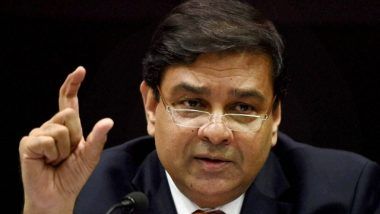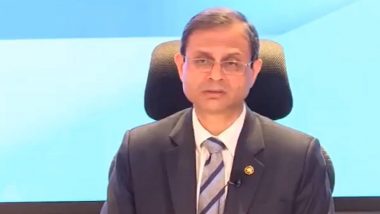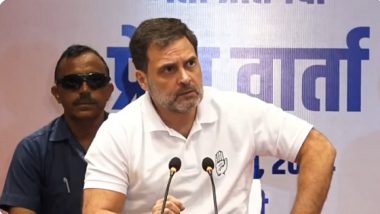New Delhi, Jun 12: RBI Governor Urjit Patel today made a strong case for more powers to effectively regulate public sector banks (PSBs) as lawmakers asked him tough questions over increasing bad loans and frauds.
As per sources, Patel also informed the Standing Committee on Finance that the RBI is in communication with the government for discontinuing the practice of appointing the central bank's nominees on boards of PSBs to avoid to any conflict of interest between the regulator and regulated entities.
Patel was asked about bad loans, bank frauds, cash crunch and other issues, said sources. They also said he assured the panel members that steps were being taken to strengthen the banking system.
Regarding PSBs, Patel told the panel that the RBI has "inadequate" control over them and asked for more powers to regulate them. RBI has cited at least 10 areas where it has no control over PSBs. The central bank has no powers to remove chairman, director or CEO of state-owned banks and also cannot impose a restriction on common directors on PSB boards, among others.
Sources said committee member Nishikant Dubey observed that the Banking Regulation Act empowers the RBI to inspect and supervise commercial banks as well as monitor financial institutions based on internationally adopted CAMEL model. It focuses on capital adequacy, asset quality and other aspects.
"I don't think there is any need of extra powers for the RBI," Dubey reportedly said in the meeting. There are 21 state-owned banks, including State Bank of India.
The gross non performing assets (NPAs) of PSBs stood at Rs 7.77 lakh crore at end-December 2017. The total NPAs of all banks, including private ones, was a whopping Rs 8.99 lakh crore.
Patel also told the panel, headed by veteran Congress leader M Veerappa Moily, that there should be no central bank nominee on the boards of PSBs, sources said. The central bank, Patel said, was discussing the matter of RBI nominee director with the Finance Ministry. He categorically said the primary and collective responsibility to contain frauds in the banks rests with their respective boards, according to the sources.
In a written reply to the panel, Patel said the main role of directors on a bank's board, including nominee directors, is to ensure that the bank is managed efficiently and professionally, as per sources. Patel was asked questions regarding governance issues in ICICI Bank and Axis Bank.
The proposals coming before the board and its committees are consistent with normal banking practices, guidelines of the government, the RBI and are not violative of any law, he said. "RBI nominee directors should be distanced from management committee of the board (which takes credit decisions) to avoid any conflict of interest and the RBI nominee should not be on the boards of the PSBs," he noted.
Further, sources said the RBI Governor also answered queries regarding the USD 2 billion fraud allegedly committed by diamond merchant Nirav Modi and his associates at the Punjab National Bank.
In the context of this fraud, Patel reportedly said it was impossible to look after each and every branch of a bank in terms of an audit. He said the separation of the post of Chairman from that of the CEO/MD, in the nationalised banks, has been done with a view to strengthening the independence of the board and enhancing its oversight over the management.
Highlighting the need for implementation of the Nayak committee report on governance of bank boards, he said it will go long way in improving the role of the boards of the nationalised banks.
Sources further said that some members of the committee sought to know about the reasons for recent instances of ATMs running out of cash and why enough steps were not taken to tackle banking frauds.
Patel told the panel that steps were being taken to strengthen the banking system. "We are confident that we will be able to tide over the crisis," a source quoted the governor as saying with respect to the NPA situation.
On an optimistic note, Patel informed the committee that after implementation of the Insolvency and Bankruptcy Code (IBC), the situation on the NPA front has been improving. Sources also said panel members put questions to Patel about final amount of the cash returned to the banking system post demonetisation, but they did not get a satisfactory answer.
According to the RBI Governor, the revised framework for NPA identification issued on February 12 would provide sufficient time for banks to put in required resolution plan.
"Thus the revised framework seeks to shorten the time period between the manifestation of a financial distress in a borrower and decisive action to resolve the same," he reportedly said in a written reply. Patel also appeared before the Standing Committee on Energy and answered questions related to NPAs in the power sector.













 Quickly
Quickly




















